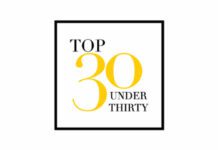TORONTO — The Canadian Coffee & Tea Show returned to Toronto this week, bringing together baristas, tea experts, distributors and industry influencers.
This year’s event, which took place at the Toronto Congress Centre on September 23 and 24, featured morning education sessions and more than 140 exhibitors. The event also featured a selection of interactive workshops on the tradeshow floor, including latte-art demonstrations, pour-over-coffee tutorials and equipment seminars.
During the morning sessions, Robert Carter, executive director at the NPD Group, joined Solange Ackrill, VP of Marketing and Corporate Strategy at Club Coffee, for an interactive education session highlighting key trends in the coffee market. Lesya Blaych-Cooper, president of the Coffee Association of Canada served as the moderator.
Titled “Brewing Up Success in Today’s Specialty Coffee Market”, the panel identified key trends driving the coffee market, including millennials, decaffeinated drinks and espresso-based beverages.
“When we want to go out for coffee with somebody, it’s something that we look forward to and it’s something that’s engaging,” says Blaych-Cooper. “Millennials eat more out of home than any other generation. About 45 per cent of money spent on food is spent in restaurants [and cafés].”
In what’s becoming a $6.8-billion industry worldwide, she added that millennials are looking for an overall experience, not just in the environment of the café or quality of the coffee; they’re also looking for socially and environmentally responsible brands in which to invest their dollars.
According to a coffee-trends study by the Coffee Association of Canada, consumers are more likely to buy coffee if it is grown on farms that treat workers well, grown in an environmentally responsible way and the company gives back to the community.
Encouraging business owners to target that group, Carter says that over the last five years, morning sales have increased for coffee drinkers, as well as lunch and snack day-part sales, which has led to increased sales and opportunity for coffee makers and distributers.
“Millennials represent the largest share of restaurant consumer,” Carter explains. “It’s this group that’s defining the marketplace and coffee is a very important category to the millennial group. That’s why we’re seeing a lot of innovation from coffee makers and producers. If you don’t have a millennial strategy, make sure you have one going forward.”
Another key trend impacting the market is the emergence of decaf coffee, which is increasing in popularity among seniors and other demographics looking for quality, non-caffeinated drinks at different periods.
Tracey Black-Hanratty and Lori Latimer-Merlin, owners of the Ugly Mug Café and Emporium in Sydney, N.S., say they’re seeing growth in decaffeinated-drink sales.
“They have that perception of the old decaf that they used to put in the cup and stir but [it’s changed a bit]. Once they try it, they like it. Our sales have gone up and we offer decaf espresso as well,” noted Latimer-Merlin.
Another key segment gaining traction is the office market, which has started to come back strong in recent years. The panelist noted that more employers realize that coffee is important for employees to catch a break at work or stay locked in on the job.
Keelan Muldoon, a sales specialist at Muldoon’s Coffee, spoke to his experience as a single-serve provider of coffee in Canada. “A lot of people are trying to save but also be green in the process, which is a difficult thing to do,” Muldoon says. “We find, with our new single serve coffee, that we’re able to allow the environmental factor to come in as our pods are biodegradable and compostable. I find that it’s extremely important [for the millennial group]. Everyone wants to go green, realistically, so it’s huge for us to be able to do that and appeal to them.”

















